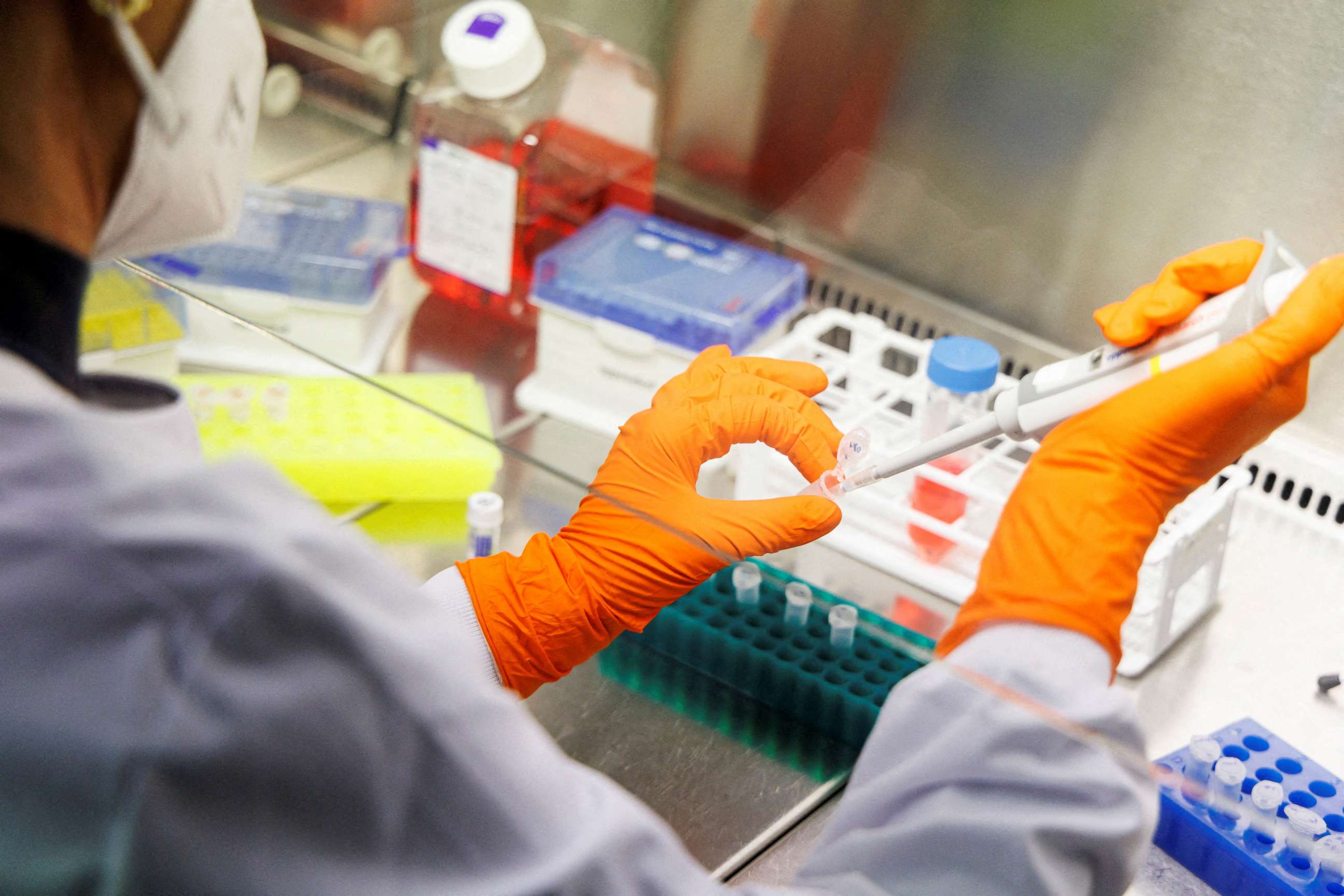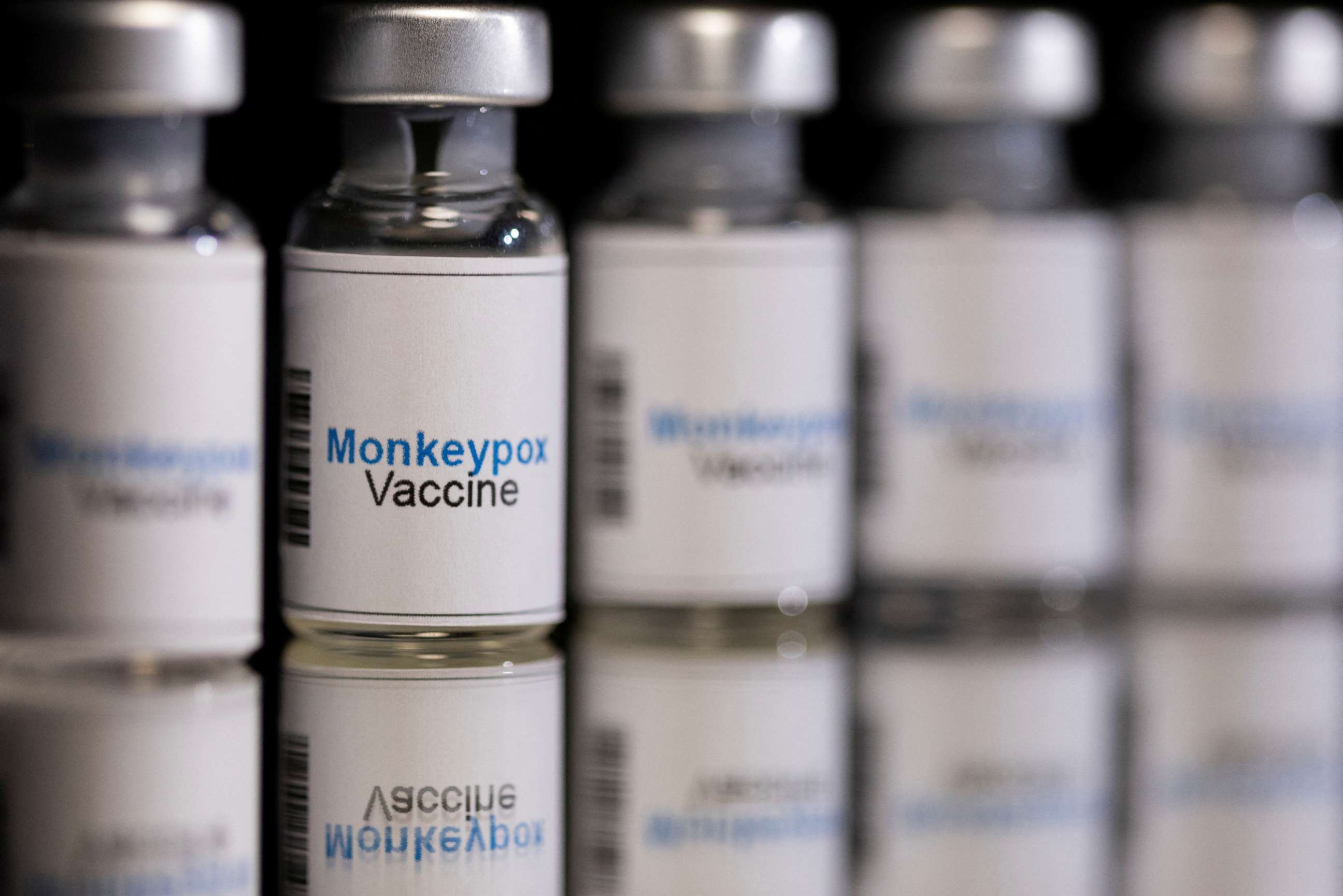HHS to send out nearly 300,000 monkeypox vaccine doses across US in coming weeks
The Biden administration is planning to send out hundreds of thousands of monkeypox vaccines in response to the outbreak of the rare disease that has been identified in multiple non-endemic countries.
The Department of Health and Human Services announced Tuesday on a call with reporters that it will be sending out 296,000 doses of the JYNNEOS vaccine for prevention of the disease for people who have been exposed.
Of that number, 56,000 doses will become available immediately and an additional 240,000 doses will become available in a few weeks. Officials said they expect 750,000 more doses to become available over the summer, and an additional 500,000 doses throughout the fall.

This allows for a total of "1.6 million doses we wouldn't have had otherwise," Dr. David Boucher, director of infectious disease preparedness and response at HHS, told reporters during the call.
Additionally, the Centers for Disease Control and Prevention is expanding its recommendation of who gets the monkeypox vaccine due to the difficulty identifying all contacts in the current outbreak.
Previously, the federal health agency only recommended vaccination for people who had been identified as being exposed through contact tracing.
But the CDC said it is now recommending the vaccine for those with confirmed and suspected exposures, including those who have had close physical contact with a person who was diagnosed, contact with a known sexual partner who was diagnosed, and men who have sex with men who were in an area with known monkeypox exposure.
CDC Director Dr. Rochelle Walensky said on the call that, as of Tuesday evening, 4,700 monkeypox cases have been detected globally in 49 countries.
In the U.S. alone, 306 cases have been identified across 28 jurisdictions with no deaths.
Many cases have been reported among men who identify as gay, bisexual or men who have sex with men, but there is currently no evidence monkeypox is a sexually transmitted infection -- and the experts emphasize that anyone can be infected.
Dr. Jennifer McQuiston, deputy director of the CDC's Division of High Consequence Pathogens and Pathology, said the majority of U.S. cases in this outbreak have occurred through intimate close contact as exposure to transmission via droplets.

However, officials advised Americans not to panic and that there are plenty of tests, vaccines and treatments for those who have been exposed to monkeypox.
"We want to remind folks this is not a novel virus," Dr. Ashish Jha, the White House COVID-19 response coordinator, said. "Unlike COVID, monkeypox is a virus that has been around forever. We have known about it for 60-some-odd years and we have spent years treating it in endemic nations."




